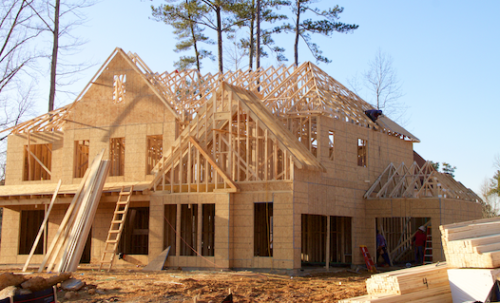Greensboro has a housing shortage that is going to get worse, not better, when the huge economic development projects now under construction start hiring.
The Greensboro City Council is spending millions to try to ameliorate the “affordable housing” shortage but hasn’t shown the same interest in the overall housing shortage.
Greensboro is not alone in having a housing shortage. North Carolina is growing at a rapid pace but housing has not kept up, causing housing shortages all over the state.
Because it is a statewide problem, the North Carolina legislature is looking at taking action to make building residential dwelling units easier by lifting some of the government regulations that make construction more expensive and take much longer.
The Greensboro City Council is a good example of the problems developers have statewide. It doesn’t appear that anyone on the City Council understands that time is money, and that delaying a project for a month or two or six costs the developer money, which means the dwelling units, whether they are houses or apartments, are more expensive.
On Monday, Dec. 12, The Carolina Journal reported on a housing summit held last week by the CATO Institute and the John Locke Foundation.
At that meeting, CATO Institute Senior Fellow Michael Tanner said that the housing shortage in North Carolina was getting worse because the gap between new residents arriving in the state and the number of homes being built has expanded. This has created a supply-and-demand situation where houses are much more expensive because the supply is low and the demand is high.
According to Tanner, the main impediment to building more housing is the government. He said that overregulating things like setbacks, multi-family residences, parking spaces, lot-sizes, building heights and accessory dwelling units was making the problem worse.
Although Greensboro wasn’t specifically mentioned, the setback requirements for detached single-family residences in Greensboro is so convoluted and complicated that it could serve as the poster child for over regulation.
Tanner said that the state could step in and pass legislation to make building easier across the state.
State Sen. Paul Newton (R-Cabarrus), who is the new state Senate majority leader, noted that local elected officials are under a lot of pressure not to relax zoning restrictions, so they should welcome some relief from the state.
Newton also said that a bill concerning zoning regulations would be introduced in the state legislature in the coming session.


Govt meddling is always the main source of problems. The free market would solve most economic problems, if left alone to do it.
You hit the nail on the head miller. Government interdiction is the biggest problem. Should there be government regulation? Some is needed but they have gone WAY too far with it. The market will decide.
Our Mandate Mayor and her cabal only like to zone things to subjugate homeless folks and where they can eat and sleep. Oh yeah and to allow drunks to wander around designated “no homeless” zones thru downtown Greensboro.
Mandate Mayor and her cabal have been abusive and standoffish to private home builders and folks building their own businesses…….except megadonors who get things like water and sewer outside of city limits and high rise luxury apartments that forced out outdoor rooftop bars.